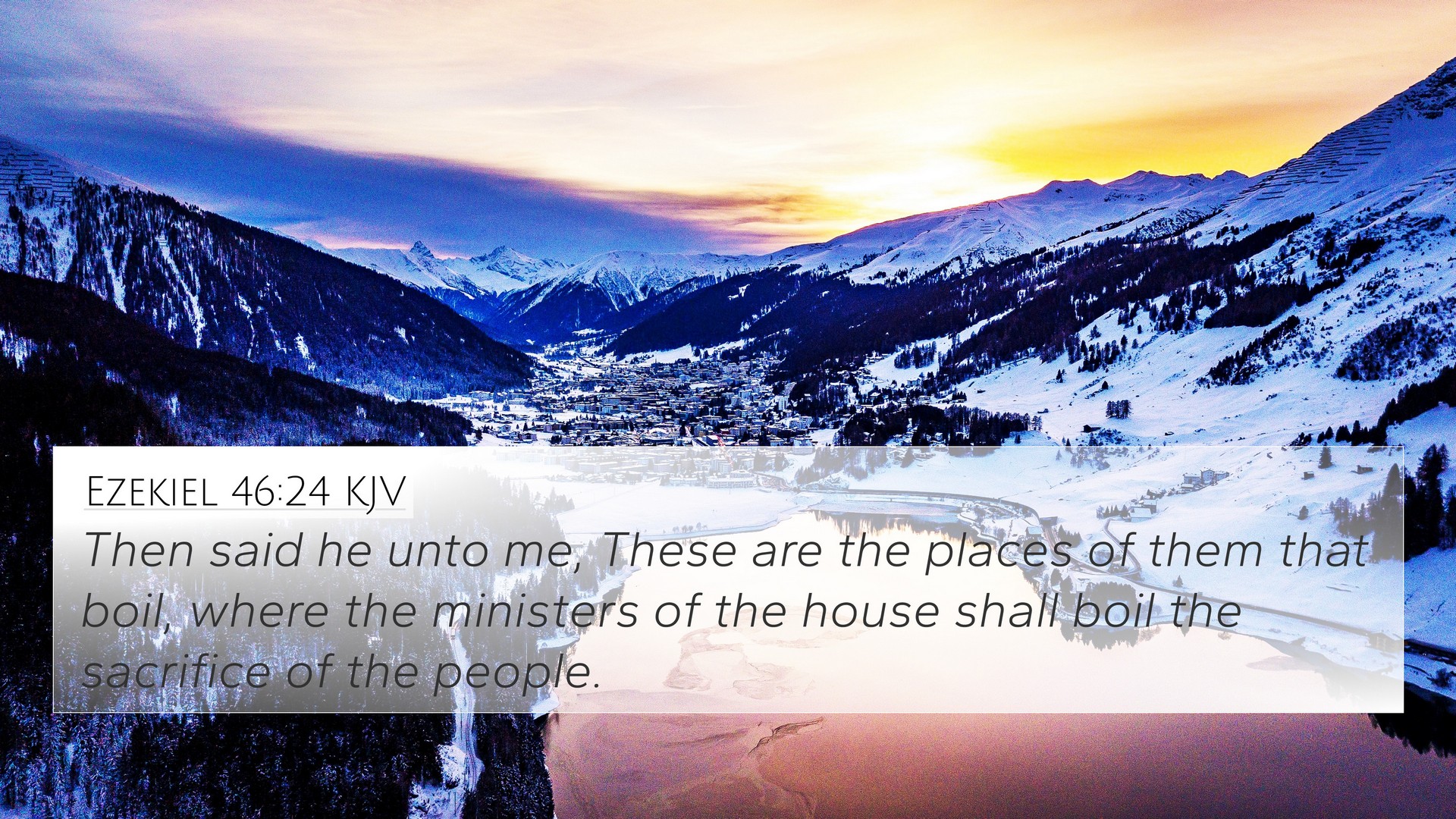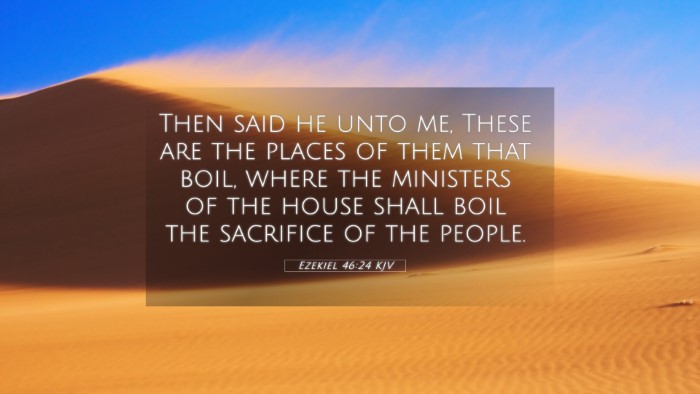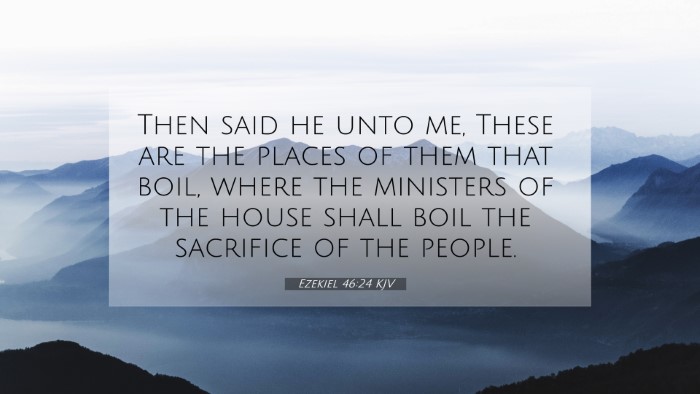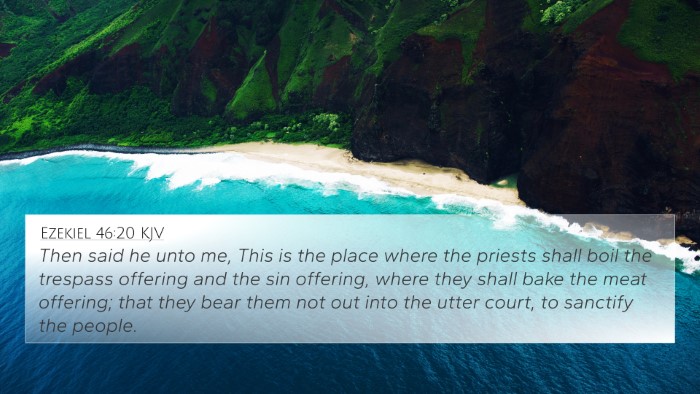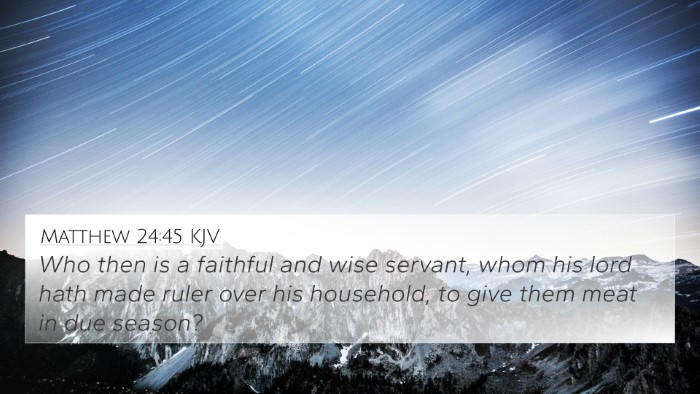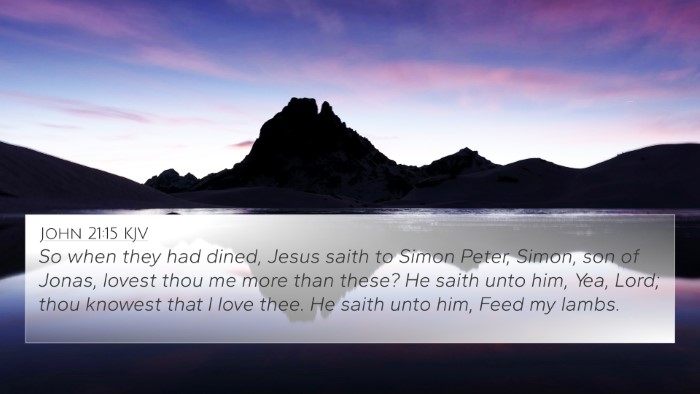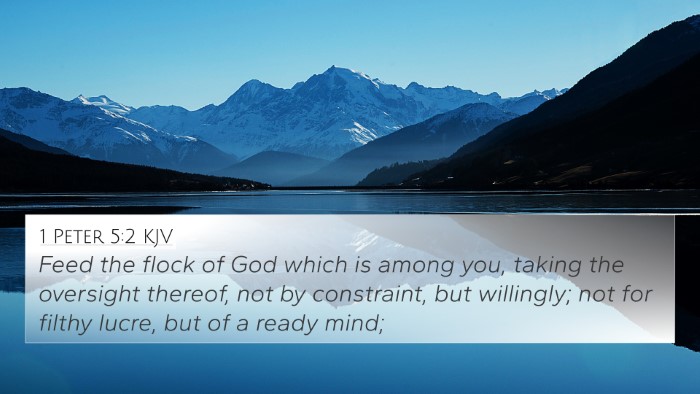Ezekiel 46:24 - Understanding the Verse
Ezekiel 46:24 discusses the instructions regarding the offerings and sacrifices during the sacred observances in the temple. This verse presents significant insights into the practices established by God for worship, specifically concerning the actions of the priests.
Summary of Ezekiel 46:24
The verse states:
"And he said unto me, These are the places of them that boil, where the ministers of the house shall boil the sacrifices of the people."
Key Insights
- Role of the Ministers: The priests or ministers have specific roles in the sacrificial system, emphasizing the importance of their service in maintaining the sanctity of worship.
- Boiling of Sacrifices: The act of boiling signifies a process of preparation for offerings, symbolizing purification and the appropriateness of sacrifices for God.
- Community Aspect: The mention of the "sacrifices of the people" indicates that worship is communal and the actions of the priests are directly connected to the people's devotion.
Bible Cross-References
- Leviticus 1:5: Connections to the burnt offerings and the procedures laid out for sacrifices, echoing the necessity of proper ritual methods.
- Leviticus 7:30: Discusses the ways offerings should be brought and prepared, highlighting the importance of physical preparation in worship.
- Deuteronomy 12:5-7: Describes the place of worship and the nature of offerings, reinforcing God's desire for designated places of reverence.
- Numbers 18:2-3: The service of the priests as essential to the tabernacle's operations and the responsibilities entrusted to them.
- Hebrews 9:9-10: These verses draw a parallel in the New Testament regarding the sacrificial system, relating to the old system of sacrifices.
- Psalms 51:17: Highlights that God desires a broken spirit and contrite heart more than sacrifices, emphasizing internal devotion over ritual.
- Matthew 5:23-24: Discusses the significance of reconciliation over offerings, suggesting that the heart's condition is paramount in worship.
- Romans 12:1: Exhorts believers to offer their bodies as living sacrifices, reflecting the continuity of sacrificial themes from the Old Testament to the New.
- 1 Peter 2:5: Relates to the concept of being a holy priesthood, connecting the practices of the Old Testament to the identity of believers.
- Revelation 5:8: Indicates the prayers of the saints as offerings before God, symbolizing the ultimate fulfillment of sacrifice in Christ.
Comparative Bible Verse Analysis
When examining Ezekiel 46:24, it's essential to consider how this passage interlinks with other scriptures related to sacrificial practices. This verse not only captures the ceremonial aspect of worship but also leads us to reflect on broader themes within the Bible regarding God’s requirements for genuine worship and the heart attitude during such acts.
Thematic Bible Verse Connections
This verse prompts important reflections on themes such as:
- Sacrifice and Worship: Understanding the significance of sacrifices across different eras, culminating in Christ's ultimate sacrifice.
- Priestly Duties: The evolving role of the priesthood from the Old Testament to the New Testament.
- Community Engagement in Worship: Exploring how individual and collective worship practices inform community life in faith.
Scriptural Cross-Referencing
Cross-referencing Ezekiel 46:24 with the New Testament reinforces the continuity between the old covenant and the new, illustrating God's consistent character and expectations regarding holiness, sacrifice, and communal worship.
Tools for Bible Cross-Referencing
To study verses like Ezekiel 46:24 more deeply, utilizing tools such as a Bible concordance, a Bible cross-reference guide, and engaging in cross-reference Bible study methods can enhance your understanding of the interconnectedness of Scripture.
Long-Tail Keywords and Their Use
Identification of connections between the Old and New Testament is pivotal for comprehending the full narrative of the Bible, encouraging deeper study regarding themes such as sacrifice, worship, and the role of believers today.
